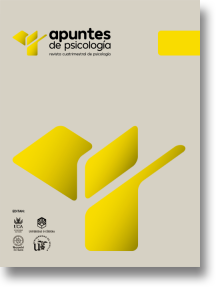Adoption in Andalusia
DOI:
https://doi.org/10.55414/d6rejv03Keywords:
adoption, family dynamics, adopted and non-adopted children, institutionalized childrenAbstract
As a request of the Andalusian regional government, a study was carried out on 393 families who adopted children in the period of 1988 to 1993. Additionally, 865 children were included in a comparative study aimed at analysing similarities and differences between adopted children, their present classmates and their potential classmates had their lives followed another path (either remaining with their families of origin or living in an institutional long-term care arrangemenD. Overall results show that adoptions are working out very well, although there areadoptive families facing more difficulties than others. The comparison between groups of children shows that adopted children are very similar to their current classmates, with both groups at a certain distance from the children who remain with their families of origin, and at a greater distance from those who live in institutions, who are the ones presenting the most difficulties. Based on the results, adoption is considered to be a very positive alternative for children in need of long-term social protection. Changes are suggested in the model of intervention developed by the technical teams responsible for initiating the adoption process.
Downloads
References
.
Downloads
Published
Issue
Section
License
Copyright (c) 2022 APUNTES DE PSICOLOGÍA

This work is licensed under a Creative Commons Attribution-NonCommercial-NoDerivatives 4.0 International License.


















